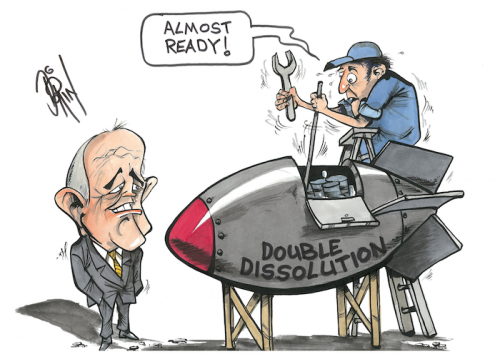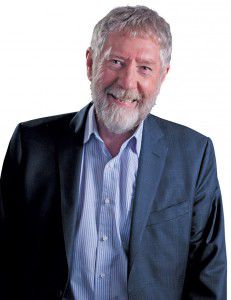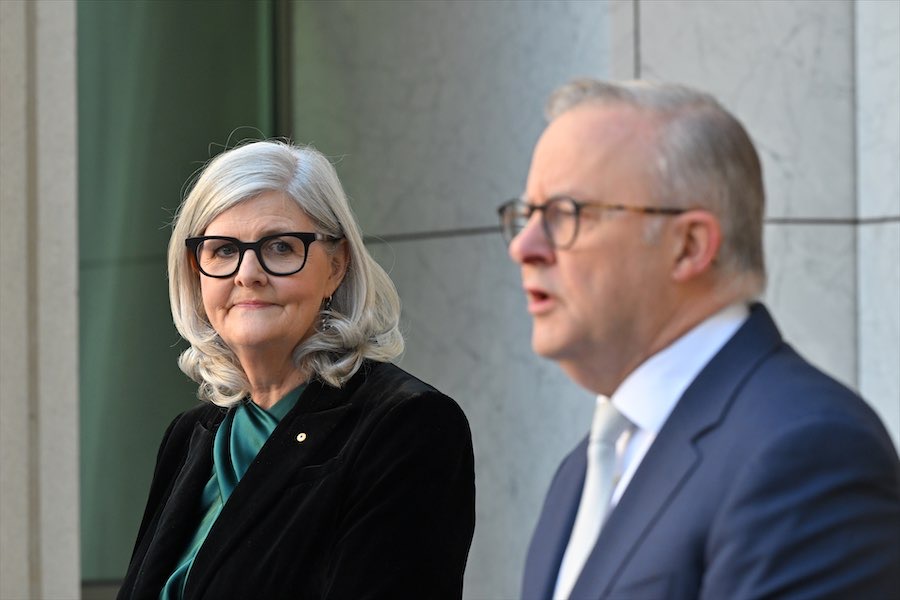 SECOND-guessing the timing and manner of the next Federal election is one of the favourite political games in town.
SECOND-guessing the timing and manner of the next Federal election is one of the favourite political games in town.

It may be the Prime Minister’s call, but every other boffin is also having a go. Malcolm Turnbull will have to balance a wide range of issues, political judgement and historical lessons.
He cannot make the mistake of former Queensland Premier Campbell Newman in appearing to be “tricky” – but he will certainly be looking for a time when the conservatives have their best chance at winning.
Recent polls showing a steady slide from the heady days of the early Turnbull government will also be playing on the PM’s mind.
A recent Newspoll showed, on a two-party preferred basis, both the major parties in a neck-and-neck contest. However, it also showed Turnbull’s popularity slipping from a high rating and Opposition Leader, Bill Shorten, on the improve – albeit from a very low base.
Senior ministers have been dropping hints about an early Budget and the possibility of a double dissolution election on July 2. This is no accident. They allow the Liberal-National coalition to test the waters and to determine public reaction. They are trying to see if the gamble of a double dissolution election will, at least temporarily, remove the troublesome smaller parties that were elected on preference deals.
Under the new voting system in the Senate, the preference deals that until last election had favoured the major parties will be replaced with an optional preferential system of above and below-the-line voting. This means that voters’ preferences will count rather than preferences negotiated in secret backroom deals between both large and small parties. This system only became a problem when Glenn Druery (“the preference whisperer”) showed the minor parties how to take advantage of the system rather than the manipulation being left in the hands of the major party power brokers.
An election fought on union corruption will suit the conservatives. They have done the groundwork by appointing a Royal Commission under Commissioner John Dyson Heydon. They have used the process to expose weaknesses in union management and to prepare anti-union legislation. With only about one in 10 workers in the private sector and around a third in the public sector being union members, and overwhelmingly baked-on Labor voters, it makes political sense for the conservatives to launch such an attack.
The government already has a trigger with the twice rejected Bill on registered organisations. However, credibility for a double-dissolution early election would favour the government seeking yet again to push the legislation to establish an Australian Building and Construction Commission (ABCC) with powers to investigate or prosecute matters relating to the Fair Work Act or specific building industry laws.
The idea was recently floated by Attorney-General George Brandis, who told Sky News the government still had the ABCC legislation “up its sleeve” as a trigger.
Others have been testing the waters. Assistant Treasurer Kelly O’Dwyer has thrown the possibility of an early Budget into the mix. Her careful floating of the idea to table the Budget a week early cannot be seen to be an accident. She is more astute than to allow such a slip.
After her initial comment, she went on to tell ABC Radio: “I’m not aware that there is any different election timetable”.
A slightly earlier Budget would allow the government more time to sell a “good news” election Budget and avoid it being confused with the election being proclaimed.
Keeping all possibilities on the table, the Minister for Employment and Women, Michaelia Cash, told the National Press Club she considered Budget night to be Budget night and was specific about the May 10 date.
An early Budget would also provide appropriate time to go through the double-dissolution process before an election on July 2 or 9. A double-dissolution election cannot be called in the six-month period before the last date for an election and, therefore, the appropriate process would require proclamation by May 11, the day after the Budget is brought down and before the Opposition Leader having the traditional right of reply.
Rather than believing Turnbull has made up his mind on an early election, it seems much more likely that he is using carefully orchestrated interventions to test the waters.
He is watching the public response and gathering as much intelligence on the reaction of the electorate before plunging into the deep end of the election pool.
With all of this in mind, this boffin is predicting a double-dissolution election on Saturday, July 2.
Who can be trusted?
In a world of spin and confusion, there’s never been a more important time to support independent journalism in Canberra.
If you trust our work online and want to enforce the power of independent voices, I invite you to make a small contribution.
Every dollar of support is invested back into our journalism to help keep citynews.com.au strong and free.
Thank you,
Ian Meikle, editor





Leave a Reply